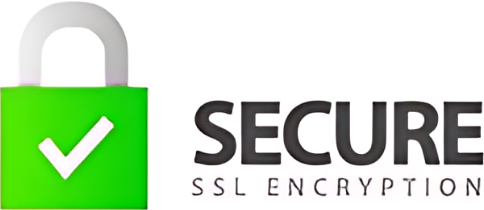Complete Guide to EOBI and Social Security in Payroll
Employee benefits are a vital part of payroll management in Pakistan. Two of the most essential statutory contributions employers must handle are EOBI (Employees’ Old-Age Benefits Institution) and Social Security. These ensure employees are protected during retirement, disability, or illness. Understanding how to manage and calculate these within payroll is crucial for legal compliance and employee satisfaction.
What is EOBI?
The Employees’ Old-Age Benefits Institution (EOBI) is a government-managed social security program in Pakistan, established under the Employees’ Old-Age Benefits Act, 1976. Its main purpose is to provide financial support to employees after retirement, or in cases of permanent disability or death. By contributing to a collective fund during their working years, employees can ensure they receive a stable source of income when they are no longer able to work. This system plays a crucial role in providing long-term social protection and reducing financial insecurity among the workforce.
How Does EOBI Work?
EOBI functions as a contributory pension scheme, meaning both employers and employees contribute a fixed percentage of the employee’s salary to the fund. Employers are required by law to deposit contributions for all eligible employees, while employees contribute a smaller portion deducted from their monthly wages. The collected contributions are managed by EOBI, which ensures that pensions and other benefits are paid out systematically. The fund covers a variety of benefits, including monthly old-age pensions, invalidity pensions for permanently disabled employees, and survivor pensions for the family members of deceased contributors.
Who is Eligible for EOBI?
Eligibility for EOBI is determined by both employment criteria and registration. Employees working in organizations with five or more workers are generally required to be registered under the EOBI scheme. To be eligible for benefits, an employee must have an EOBI card number and be formally employed in a registered organization. Contributions are mandatory for both the employer and employee, and failure to comply can result in penalties for the employer.
Retirement and Benefits
Employees become eligible for EOBI benefits upon reaching the official retirement age, which is 60 years for men and 55 years for women. To qualify for a full pension, employees must have completed the minimum required contribution period, which is typically 15 years or 180 months. In addition to old-age pensions, EOBI also provides invalidity pensions for employees who become disabled before retirement, and survivor pensions to the dependents of deceased contributors. The scheme may also offer lump-sum grants in certain cases where regular pension eligibility is not met.
Contribution Structure
The contribution system ensures that the fund remains sustainable. Employers contribute 5% of the employee’s minimum wage, while employees contribute 1% of the minimum wage monthly. This collaborative approach ensures a steady accumulation of funds, which can then be distributed to retirees and other beneficiaries in the form of pensions and grants. Over time, this system not only provides financial security for employees but also promotes formal employment practices in Pakistan.
EOBI Contribution Rate
The Employees’ Old-Age Benefits Institution (EOBI) operates on a contributory basis, where both the employer and the employee share responsibility for funding the scheme. The employer contributes 5% of the employee’s minimum wage, while the employee contributes 1%. These contributions are deposited monthly into the employee’s EOBI account, ensuring that funds accumulate over time to provide retirement pensions, disability benefits, or survivor benefits. This shared contribution model helps maintain the sustainability of the EOBI fund and guarantees that employees receive financial security upon retirement or in case of unforeseen circumstances.
Understanding Social Security in Pakistan
Social Security in Pakistan is a separate program designed to provide employees with medical, health, and maternity benefits in case of illness, injury, or other emergencies. Unlike EOBI, social security is province-specific and managed by the Provincial Employees’ Social Security Institutions, such as PESSI (Punjab) or SESSI (Sindh), depending on where the business operates. The program ensures that workers have access to healthcare facilities and financial support during times when they are unable to work due to health reasons.
Social Security Contribution Rate
The social security contribution is entirely the responsibility of the employer. Typically, the employer contributes 6% of the employee’s gross wages, subject to limits defined by the respective provincial authority. Unlike EOBI, employees do not contribute from their salary. These contributions are used to fund hospitals, medical care, and other health benefits, providing employees with an essential safety net and ensuring their wellbeing in the workplace.
Benefits of Social Security
Employees registered under Social Security in Pakistan enjoy a comprehensive range of benefits that ensure their well-being and provide financial protection in times of need. One of the primary advantages is free medical treatment for both employees and their dependents, allowing access to hospitals, clinics, and prescribed medications without additional cost. The system also provides maternity benefits, offering financial and medical support to female employees during pregnancy and after childbirth.
In addition, Social Security covers injury and disability compensation, ensuring that employees who are injured or become disabled during work receive timely financial support. In the unfortunate event of an employee’s death, the scheme provides death benefits to the family, helping dependents cope with financial challenges. By offering these protections, Social Security serves as a cornerstone of worker welfare, promoting employee satisfaction, retention, and overall social stability.
Why EOBI and Social Security Compliance Matters
Compliance with EOBI and Social Security regulations is crucial for both employers and employees in Pakistan. For companies, non-compliance can result in legal consequences, including penalties, fines, or even the suspension or closure of business operations. Employers are legally required to deduct contributions from employees’ salaries (where applicable) and submit them on time to the relevant institutions. Failure to do so not only violates labor laws but can also damage the company’s reputation.
From the employee’s perspective, proper compliance ensures financial security and access to benefits such as pensions, medical care, disability compensation, and survivor benefits. Regular contributions and registration foster trust and loyalty, as employees feel secure knowing their long-term welfare is protected. Ultimately, compliance promotes a healthy employer-employee relationship and contributes to workforce stability and productivity.
Common Payroll Challenges in Managing EOBI & Social Security
Managing EOBI and Social Security contributions can be complex for businesses, especially when relying on manual payroll processes. One of the main challenges is manual calculation errors in monthly deductions. Employers must calculate precise percentages based on minimum wages or gross salaries, and even a small miscalculation can lead to underpayment or overpayment. Such errors not only affect employees’ future benefits but also expose the company to compliance penalties.
Another significant challenge is tracking employee registration numbers for EOBI or Social Security. Each employee must have a valid registration number, and maintaining an accurate record for every employee especially in organizations with a large workforce can be difficult. Missing or incorrect registration information can result in failed submissions or rejection of contributions by the authorities.
How Payroll Software Simplifies EOBI & Social Security Management
Modern payroll software, like PayTime.pk, automates contribution calculations, ensuring accuracy and compliance. It automatically applies the correct rates, tracks employee registrations, generates EOBI and Social Security reports, and reminds you about due payments. This automation minimizes human error and administrative workload.
Why Choose PayTime.pk for Payroll Compliance
PayTime.pk is designed to meet Pakistan’s payroll regulations, including EOBI and Social Security management. It offers:
- Automated EOBI and Social Security calculations
- Integrated FBR tax compliance
- Employee record management
- Real-time reports and downloadable contribution files
- Cloud-based accessibility for HR and accountants
With PayTime.pk, businesses can ensure full compliance while focusing on growth instead of paperwork.
Other Related Articles you may like to Explore
- How to Generate Pay slips Online with Paytime.pk
- 10 Common Payroll Challenges in Pakistan and Their Solutions
- Payroll for Accountants: Manage Multiple Clients in Minutes
- How to Save Tax on Employee Salaries (Legally)
- Why Cloud Payroll Is the Future of Business in Pakistan
- Difference Between Gross Salary and Net Salary Explained
Conclusion
EOBI and Social Security are more than just regulatory requirements they are critical mechanisms for ensuring employee welfare, financial security, and social protection. Proper management of these programs within payroll processes guarantees that employees receive their entitled benefits on time, while companies remain compliant with Pakistani labor laws. Efficient handling of contributions, registrations, and records also fosters trust and loyalty among the workforce, enhancing overall employee satisfaction and retention.
Using solutions like Paytime.pk allows businesses to automate EOBI and Social Security management, reducing the risk of manual errors, simplifying record-keeping, and ensuring timely submission of contributions. Automation not only streamlines payroll operations but also provides a transparent and reliable system, giving both employers and employees confidence that benefits and compliance requirements are fully met.
FAQs
1. What is the EOBI contribution percentage?
The employer contributes 5% and the employee contributes 1% of the minimum wage monthly.
2. Who pays for Social Security in Pakistan?
Only employers contribute, typically 6% of the employee’s gross wages.
3. Is EOBI mandatory for all companies?
Yes, all organizations with five or more employees must register with EOBI.
4. Can payroll software manage EOBI and Social Security automatically?
Yes, platforms like PayTime.pk automate deductions and compliance reports.
5. What are the penalties for non-compliance?
Failure to pay or register employees can result in fines, legal action, or loss of operating licenses.


